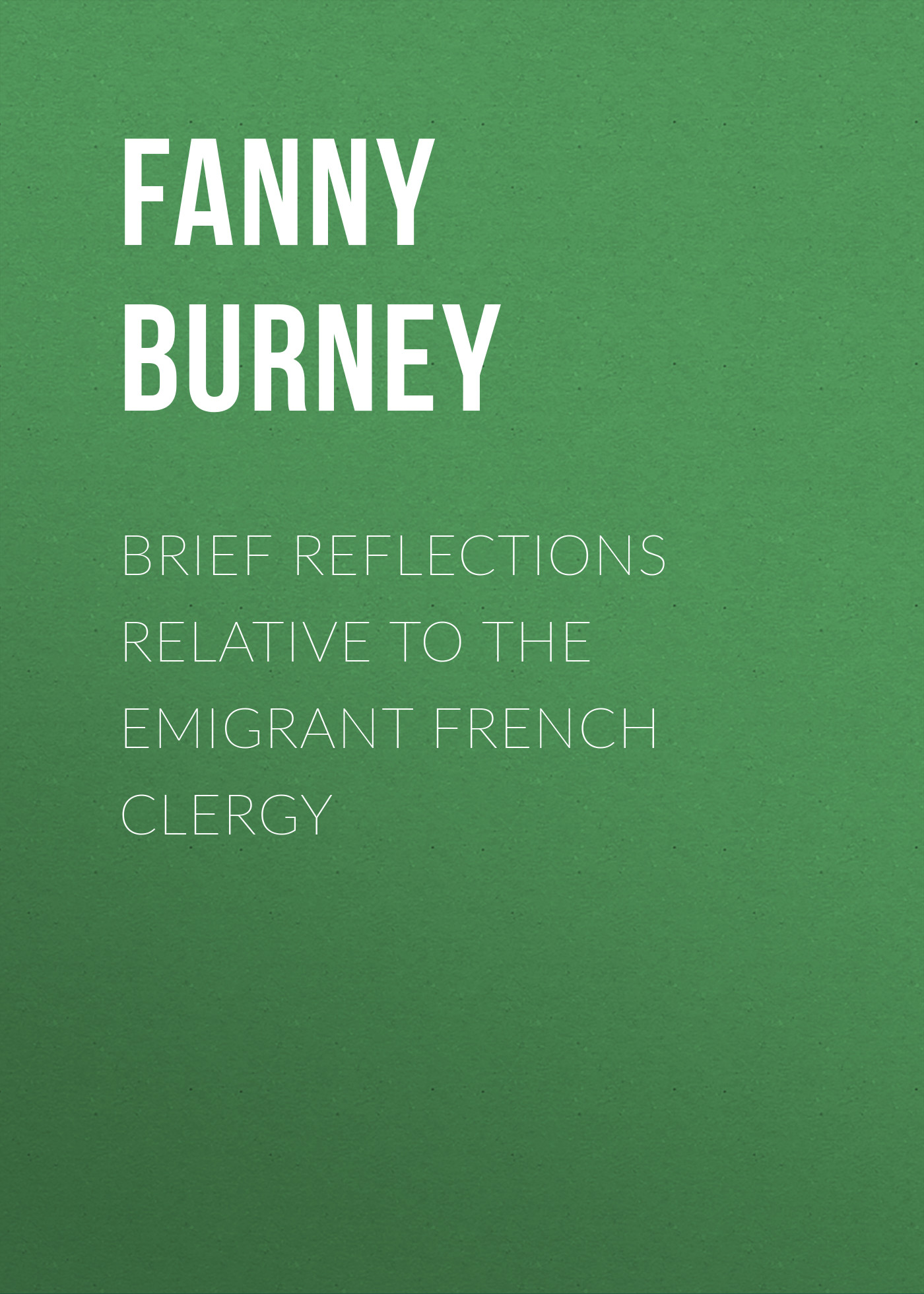Электронная книга: Burney Fanny «Brief Reflections relative to the Emigrant French Clergy»

|
Издательство: "Public Domain"
электронная книга Скачать бесплатно на Litres |
Другие книги автора:
Burney, Fanny
▪ British author
byname of Frances d'Arblay , née Burney
born June 13, 1752, King's Lynn, Norfolk, England
died January 6, 1840, London
English novelist and letter writer, daughter of the musician Charles Burney (Burney, Charles), and author of Evelina, a landmark in the development of the novel of manners.
Fanny educated herself by omnivorous reading at home. Her literary apprenticeship was much influenced by her father's friend Samuel Crisp, a disappointed author living in retirement. It was to “Daddy” Crisp that she addressed her first journal letters, lively accounts of the musical evenings at the Burneys' London house where the elite among European performers entertained informally for gatherings that might include David Garrick (Garrick, David), Dr. Johnson (Johnson, Samuel), Edmund Burke (Burke, Edmund), and Richard Sheridan (Sheridan, Richard Brinsley). Considered the least promising of the clever Burney children, Fanny moved unnoticed in the circles of the great, confiding her observations to Crisp.
Her practice of observing and recording society led eventually to her novel Evelina, or The History of a Young Lady's Entrance into the World. Evelina revealed its author to be a keen social commentator with an attentive ear for dialect and the differentiation of London speech. It concerns the development of a young girl, unsure of herself in society and subject to errors of manners and judgment. The plot terminates with Evelina's marriage after the mistakes stemming from her untutored girlhood have been surmounted. A novel treating contemporary manners in an elegant and decorous way and depending for the development of its plot upon the erring and uncertain conduct of the heroine was an innovation that pointed the way for the novels of Jane Austen (Austen, Jane). Published anonymously in 1778, Evelina took London by storm. No one guessed it was by shy Fanny Burney, then 26.
When the secret was out, Burney's debut into literary society was launched by the fashionable hostess Mrs. Thrale (Piozzi, Hester Lynch). Once the young woman overcame her shyness she could match wits with Dr. Johnson himself, who was very kind to her between 1779 and 1783 when they both made long visits to the Thrales. Burney's journals from this period have been prized for their vignettes of contemporary scenes and celebrities and for Burney's own secretly expressed delight in being famous.
Her next novel, Cecilia, or Memoirs of an Heiress, 5 vol. (1782), incorporated morally didactic themes along with the social satire of Burney's first novel into a more complex plot. Though lacking the freshness and spontaneity of Evelina, this novel was equally well received, but Burney's success was shadowed by the death of Henry Thrale in 1781, of Crisp in 1783, and of Dr. Johnson in 1784. These years also brought a disappointment in love, when the ambiguous attentions of a young clergyman came to nothing.
In 1785 Burney was presented to Queen Charlotte and King George III and in 1786 was invited to court as second keeper of the robes, where she remained for five unhappy years. Eventually her health suffered, and she was allowed to resign in 1791. Her journals of the period loyally repress court gossip of the years of the king's madness (1788–89) but contain interesting accounts of public events like the trial of Warren Hastings (Hastings, Warren).
In 1793, when she was 41, Burney married Alexandre d'Arblay, a former adjutant general to Lafayette, then a penniless French émigré living in England. They had one son. In 1796 she wrote a potboiler, Camilla: or a Picture of Youth, and on its proceeds the d'Arblays built a house in Surrey, where they moved in 1797. While on a visit to France with her husband and son in 1802, she was forced by the renewal of the Napoleonic Wars to stay for 10 years. After Waterloo (1815) the d'Arblays returned and settled at Bath, where d'Arblay died in 1818. Mme d'Arblay then retired to London, where she devoted her attention to her son's career and to the publication of her father's Memoirs (1832). An edition of her journals and letters in eight volumes was published 1972–80.
* * *
Источник: Burney, Fanny
См. также в других словарях:
Frances Burney — For playwright Frances Burney (1776–1828), niece of novelist Fanny Burney Madame d Arblay 1752 1840, see Frances Burney (1776–1828) Frances Burney (13 June 1752 – 6 January 1840), also known as Fanny Burney and after marriage as Madame d’Arblay,… … Wikipedia
biblical literature — Introduction four bodies of written works: the Old Testament writings according to the Hebrew canon; intertestamental works, including the Old Testament Apocrypha; the New Testament writings; and the New Testament Apocrypha. The Old… … Universalium
